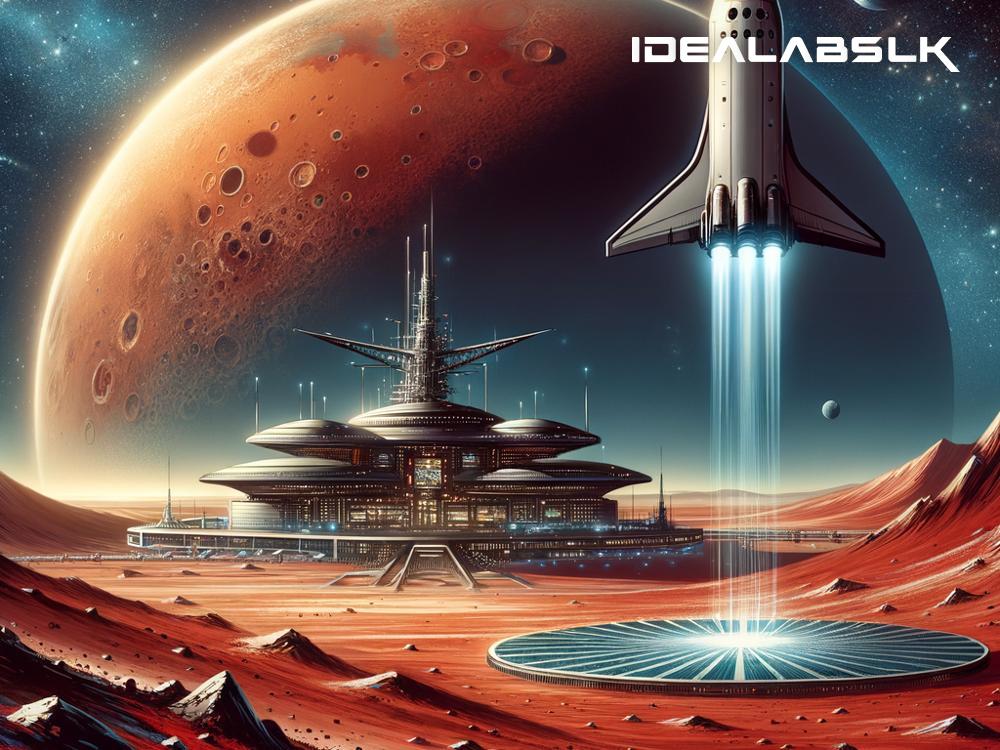Title: SpaceX and the Future of Living Beyond Earth: How Elon Musk is Paving the Way for Mars Colonization
Welcome to an exciting glimpse into the future—a future where humans live not just on Earth but also in space habitats, especially on Mars. This future is becoming more realistic, thanks to SpaceX and its founder, Elon Musk. So, let's dive into how SpaceX is leading the charge in creating the first human habitats on Mars and why this mission could change humanity's destiny.
SpaceX’s Vision for Mars
Elon Musk founded SpaceX with a grand vision: to make life multiplanetary. This means establishing sustainable human habitats on other planets, with Mars being the first target. Why Mars, you might ask? Well, Mars is somewhat like Earth. It has seasons, day/night cycles similar to ours, and essential elements to support life (with a bit of technological help). But getting there and making it livable is no small feat.
The SpaceX Approach to Mars Colonization
SpaceX's approach to colonize Mars involves several key steps. First, to make the journey feasible, SpaceX developed the Starship spacecraft. This giant, reusable rocket is designed to carry humans and cargo to Mars and back, drastically reducing the cost of space travel.
But it's not just about getting there. Creating a sustainable human habitat on Mars involves overcoming challenges such as the planet's thin atmosphere, extreme cold, and radiation. SpaceX plans to tackle these through innovative technologies like life support systems, habitats built from Mars’s own resources (a process known as in-situ resource utilization), and energy production facilities to power the new Martian society.
Elon Musk's Role and Vision
Elon Musk's role in this grand plan cannot be overstated. As the driving force behind SpaceX, his vision and determination have accelerated the pace of space technology development. Musk envisions a future where thousands of Starships carry a million people to Mars within the next 50 to 100 years. His ultimate goal is to establish a self-sustaining city on Mars that doesn't rely on Earth for survival. This means having all the essentials: homes, workspaces, community centers, and even parks—creating a new world where people can live, work, and thrive.
Why Mars? The Importance of a Backup for Humanity
One of the compelling reasons Musk and SpaceX are pushing for Martian colonization is the survival of humanity. Our planet has faced mass extinctions in the past, caused by natural or human-made disasters. Establishing colonies on Mars would provide humanity with a "backup location," increasing our chances of surviving catastrophic events on Earth.
The Challenges Ahead
The road to Mars is filled with significant challenges. Besides the technological hurdles, there are also ethical and social implications to consider. Who gets to go to Mars? How will we ensure equitable access and prevent new forms of social inequality? These are just a few of the questions that we need to address as we move closer to making Mars colonization a reality.
Moreover, the Martian environment is harsh, and living there will require overcoming psychological and physical challenges. Long-term exposure to low gravity could affect human health, and the isolation from Earth will test the mental resilience of Martians.
The Future of Space Habitats
SpaceX's plans for Mars colonization are just the beginning. The technology and lessons learned from creating the first human habitats on Mars could pave the way for exploring further into the solar system. Who knows? In a few centuries, we might have human habitats on moons of Jupiter or in floating cities within the clouds of Venus.
Closing Thoughts
The idea of Martian colonies might sound like science fiction, but with companies like SpaceX making rapid advancements in space technology, this vision could become reality within our lifetimes. Elon Musk's role in pushing the boundaries of what’s possible has not only accelerated space exploration but has also inspired a new generation to dream about the stars.
As we stand on the brink of this new era of human history, it's exciting to imagine a future where humanity has spread across the solar system. The journey to Mars and beyond will undoubtedly be one of the most challenging endeavors humanity has ever undertaken, but it also promises to be one of the most rewarding. The first human habitats on Mars, developed by SpaceX, could be the first step in ensuring the long-term survival and prosperity of humanity among the stars.

